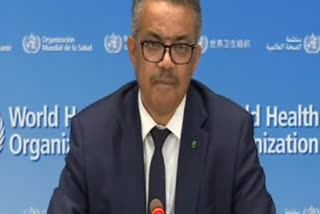Hyderabad:In order to make Covid-19 vaccines, tests, treatments and other health technology accessible to all, thirty countries and multiple international partners and institutions have signed up to support the COVID-19 Technology Access Pool (C-TAP).
The Nobel initiative was launched on Friday, which was earlier proposed by President Carlos Alvarado of Costa Rica.
While briefing about the project President Alvarado said, "The COVID-19 Technology Access Pool will ensure the latest and best science benefits all of humanity. Vaccines, tests, diagnostics, treatments and other key tools in the coronavirus response must be made universally available as global public goods."
The launching event was also joined by WHO Director-General Dr Tedros Adhanom Ghebreyesus.
"Global solidarity and collaboration are essential to overcoming COVID-19. Based on strong science and open collaboration, this information-sharing platform will help provide equitable access to life-saving technologies around the world,” said WHO Director-General.
The Technology Access Pool will provide data and intellectual property faster and can be shared with the global community at one go.
The Pool is now supported by the following countries: Argentina, Bangladesh, Barbados, Belgium, Belize, Bhutan, Brazil, Chile, Dominican Republic, Ecuador, Egypt, El Salvador, Honduras, Indonesia, Lebanon, Luxembourg, Malaysia, Maldives, Mexico, Mozambique, Norway, Oman, Pakistan, Palau, Panama, Peru, Portugal, Saint Vincent and Grenadines, South Africa, Sri Lanka, Sudan, The Netherlands, Timor-Leste, Uruguay, Zimbabwe.
There are five key elements to the initiative:
- Public disclosure of gene sequences and data;
- Transparency around the publication of all clinical trial results;
- Governments and other funders are encouraged to include clauses in funding agreements with pharmaceutical companies and other innovators about equitable distribution, affordability and the publication of trial data;
- Licensing any potential treatment, diagnostic, vaccine or other health technology to the Medicines Patent Pool - a United Nations-backed public health body that works to increase access to, and facilitate the development of, life-saving medicines for low- and middle-income countries.
- Promotion of open innovation models and technology transfer that increase local manufacturing and supply capacity, including through joining the Open COVID Pledge and the Technology Access Partnership (TAP).
Also Read:WHO partners with UN Foundation and Illumination for COVID-19 health messages
